|
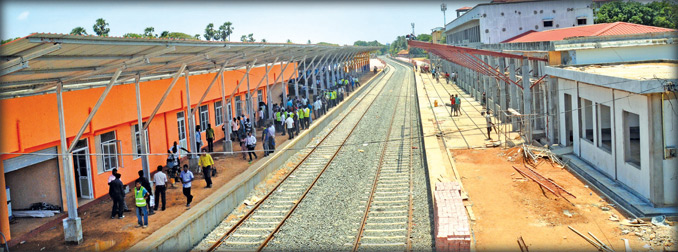
The Jaffna railway station under construction |
Trains to Jaffna after 25 years:
Boost for socio-economic activities in North
By Gamini Warushamana
After 25 years, a train reached Jaffna last Monday and it was the
first test-run on the newly constructed section from Pallai to Jaffna on
the Northern railway line.
A large number of people gathered at the Jaffna railway station,
which is still under construction, to welcome the train.
The train service to Jaffna will be ceremonially inaugurated on
October 12.
The service was the most popular, convenient and cost-effective
transport mode between Colombo and Jaffna before the period of
terrorism. The Colombo-Kankesanthurai railway line constructed during
the British colonial era is the longest railway line in the country.
On June 12, 1989, the Yal Devi train bound for Jaffna was attacked by
LTTE terrorists and it was the last train on this track and thereafter,
train services on the Northern railway line was confined to Vavuniya.
|
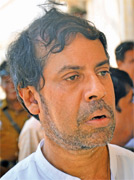
B.A.P.Ariyarathne,
GM CGR |
Before 1989, the CGR operated six passenger trains, one cargo train
and one oil tanker train a day between Colombo and Jaffna in addition to
regional trains.
After defeating terrorism in 2009, reconstruction of the railway line
was considered one of the main priorities by the Government. The
Government invested in the reconstruction of the railway line in two
stages, Vauniya to Thandikulam and from Thandikulam to Omanthai.
The construction work of the 3.5 km track from Vavuniya to
Thandikulam was completed in June 2009. The construction work of the 10
km track from Thandikulam to Omanthai was completed in May 2010.
The CGR did not have the capacity to fund the rest of the project and
therefore, the Government sought financial assistance from the
government of India.
India agreed to finance the construction of two railway lines from
Palai to Kankesanthurai and from Medawachchiya to Talaimannar.
The service was extended to Kilinochchi in September 2013 and to
Pallai in March this year.
|
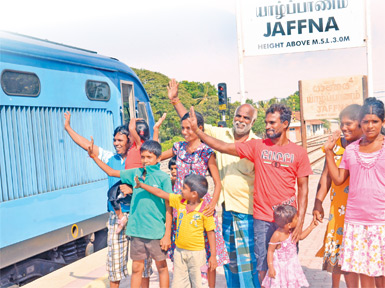
A new railway station |
The reconstruction of the 90 km-long track from Omanthai to Palai and
the remaining work was done by the Indian Railway Construction Company (IRCON),
an Indian government owned company. The track has been designed for a
speed of 100 KMPH.
The 56-km long Pallai-Kankesanturai segment is the final phase of the
project and now it has been completed up to Jaffna. This segment was
also constructed by IRCON.
The construction of the 106-km long railway track from Medawachchiya
to Talaimannar also started simultaneously.
Apart from the construction of the railway track, a new signal system
has also been installed for the Northern zone of the railway.
This separate signal system is centralised and controlled from
Anuradhapura.
"Resuming the train service would boost socio-economic activities in
the Jaffna peninsula as it is the most reliable and cost-effective
transport mode," said CGR General Manger B.A.P. Ariyarathne.
He said that the resumption of the train service to Jaffna within
five years was a significant achievement because this is a massive
project in terms of investment and the civil engineering work involved.
The rail line was totally destroyed and all the tracks and bridges
had to be reconstructed. It was a time consuming project, he said.
He said that the CGR will offer all the facilities enjoyed by railway
commuters in other parts of the country. Luxury compartments have been
attached to Yal Devi train and four express trains are now operate from
Colombo to Palai and another two trains from Colombo to Vavuniya.
|
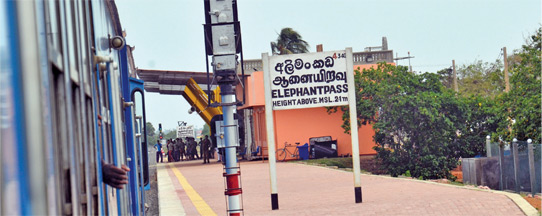
A large crowd thronged to welcome the first train |
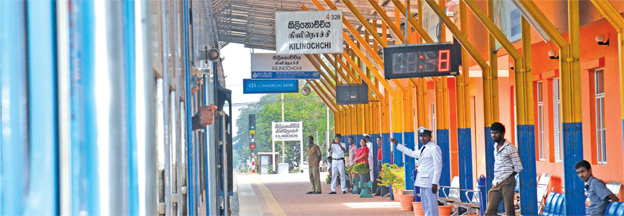 |
Pix: Wimal Karunathilake
|

